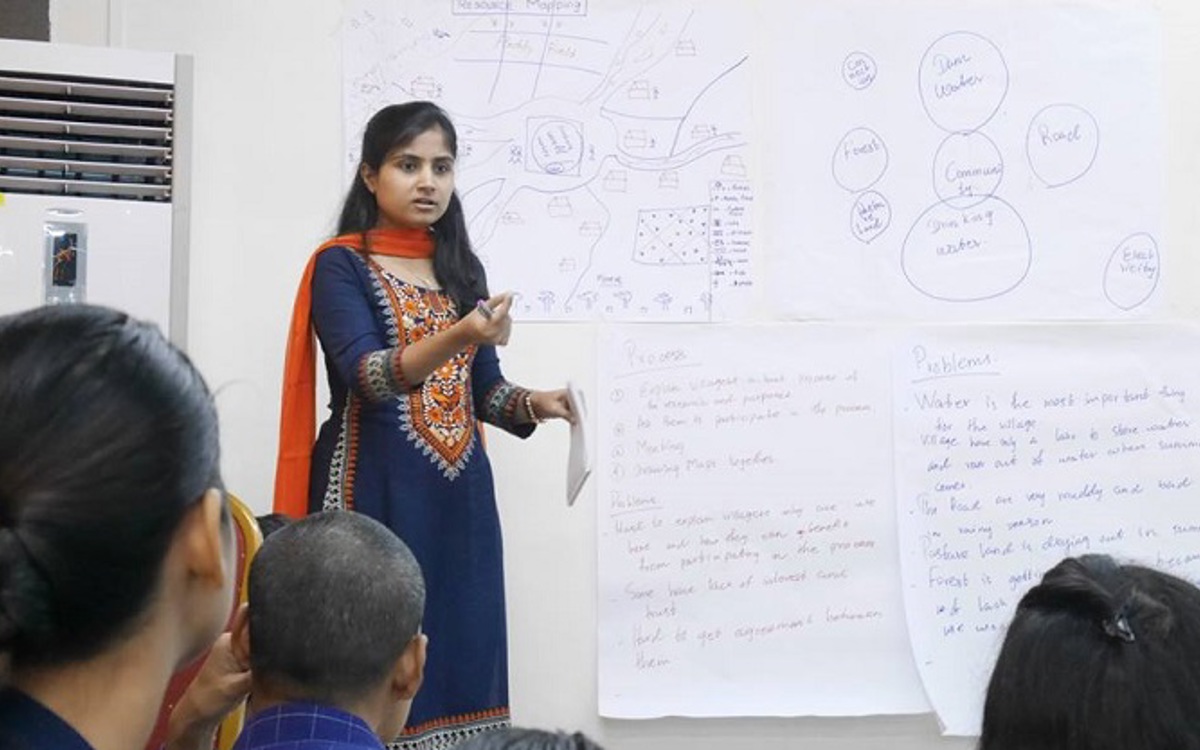

Wafa Singh
India Research Coordinator of the UNESCO Chair in Community Based Research & Social Responsibility in Higher Education, where she has been involved in numerous research projects under the higher education theme.
The higher education sector in India is in a state of complete flux. While Gross Enrolment Ratios (GERs) have seen a steep increase from 20.8% in 2011-12 to 24.5% in 2015-16, the quality of teaching and learning in higher education institutions and employability of India's graduates remains concerning. The essential problem is that teaching in higher education remains disconnected with larger society today. There are three main reasons behind this disconnect: age-old curriculum, absence of real-world learning and stagnating models of course delivery.
A number of structural reasons play out when we try to understand this disconnect and the reasons which constrain Indian higher education institutions (HEIs) from embracing 'change', especially with regard to teaching pedagogies. Two important ones are: the rigidity of the academic system and inadequate training of professors.
Notwithstanding these challenges, it is important to look for solutions. We can find them when we analyse these disconnects and compare them to examples in Indian colleges and universities where students are benefitting from engaged teaching and socially responsible learning.
Integrating new approaches to pedagogy
Curriculum in most Indian universities has largely remained unchanged for decades, and has become irrelevant to the immediate, local social reality in which students live and work in. This has gradually eroded value from the teaching process. Teaching requires dynamic revision of the curriculum and introduction of new courses which equip students to apply local knowledge to construct real world solutions. Through its Centre for Society University Interface and Research (CSUIR), Bhagat Phool Singh Mahila Vishwavidyalaya in Sonepat, Haryana, has introduced courses on rural microfinance practices, folk medicine etc., which are largely relevant to the local rural society of Haryana, where the university is based.
An absence of 'real world learning' makes teaching disengaged and redundant. Disciplinary studies should make connections with real-world and real-time social issues. New, critical and reflexive learning systems need to be incorporated, which enable students to use their disciplinary knowledge to further societal objectives of development. The University of Pune has a scheme under which each college adopts a village. Under the Samarth Bharath Abhiyaan scheme, students from various disciplines are mandated to solve one particular need of the village they adopt. While geography students use Geographic Information System (GIS) to map the locality, history students document its local history, and chemistry students undertake water/soil testing of the land. Such practice-based learning brings much needed value back into the teaching process.
Stagnating models of course delivery contribute to lack of interest among students, affecting their learning. Multi-modal pedagogies based on co-learning and participatory approaches, with a problem-solving approach, need to be adopted – and teachers in HEIs need to incorporate these pedagogies into their teaching. One way to do this is to foster collaborations with practitioner organisations that are working with communities and using participatory methodologies for social change.
Some Indian HEIs have begun the process of making their teaching-learning process more relevant and better engaged, in order to co-construct knowledge with communities and co-create local solutions to global problems such as poverty, gender discrimination, and climate change. Leading by example are Manipal University-Jaipur (MUJ) and Pandit Ravishankar Shukla University (PRSU), Raipur – these two universities have committed to building the next generation of community-based researchers through jointly offering of courses on Community Based Participatory Research (CBPR) in partnership with PRIA International Academy (PIA). Courses offered in collaboration with independent, practice-based education institutions such as PIA complement the classroom teaching process in universities and colleges. Through this approach, students learn to undertake research with communities on topics of local importance. They learn practical knowledge and tools to promote citizen engagement, social accountability, and the safety of women and girls. This enhances their learning outcomes and as graduates they better 'fit' in the real world.
Teaching is a core task at universities. A fresh new approach to teaching – one which is more engaged, learner-centric, contextually relevant, and contributes to the enhancement of knowledge, awareness, and skills of the students – is important if HEIs are to fulfil their social responsibilities. All it requires is taking that first step.
Established in 1982, Participatory Research in Asia (PRIA) is a global centre for participatory research and training based in New Delhi, India. PRIA's work is focused on empowerment of the excluded through capacity building, knowledge building and policy advocacy. Over three decades PRIA has promoted 'participation as empowerment', capacity building of community organisations, and people's participation in governance. Initiatives are undertaken in the overall perspective of 'making democracy work for all' – in the political system; democratic culture in families, communities, and society; and participatory democracy with active citizenship.

